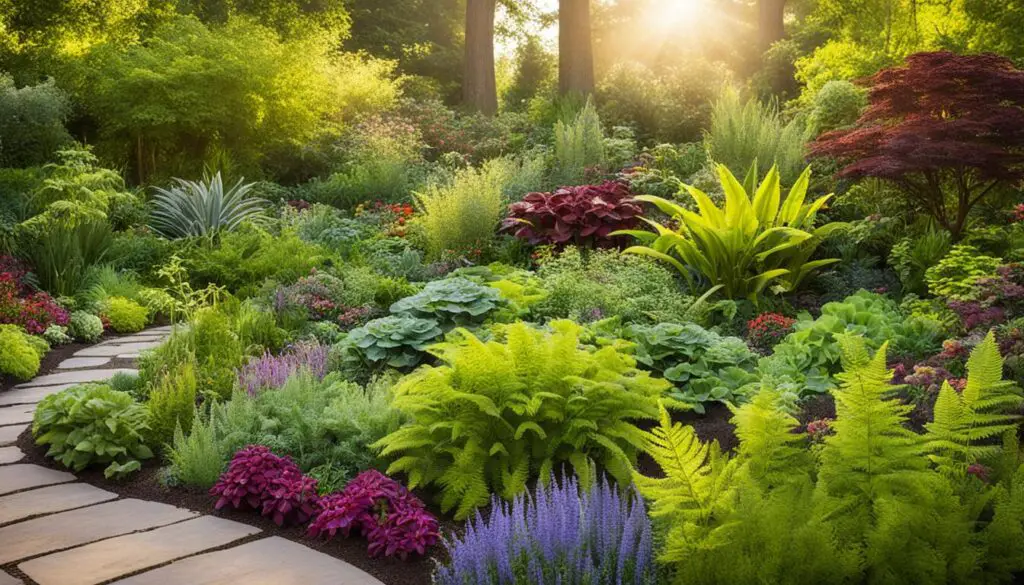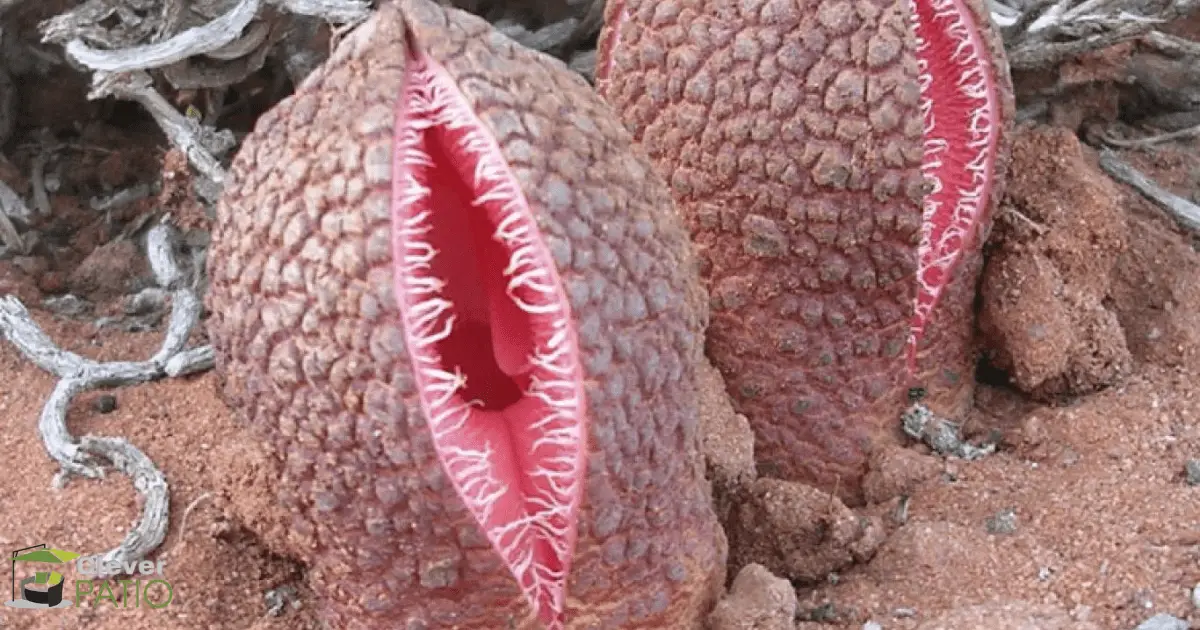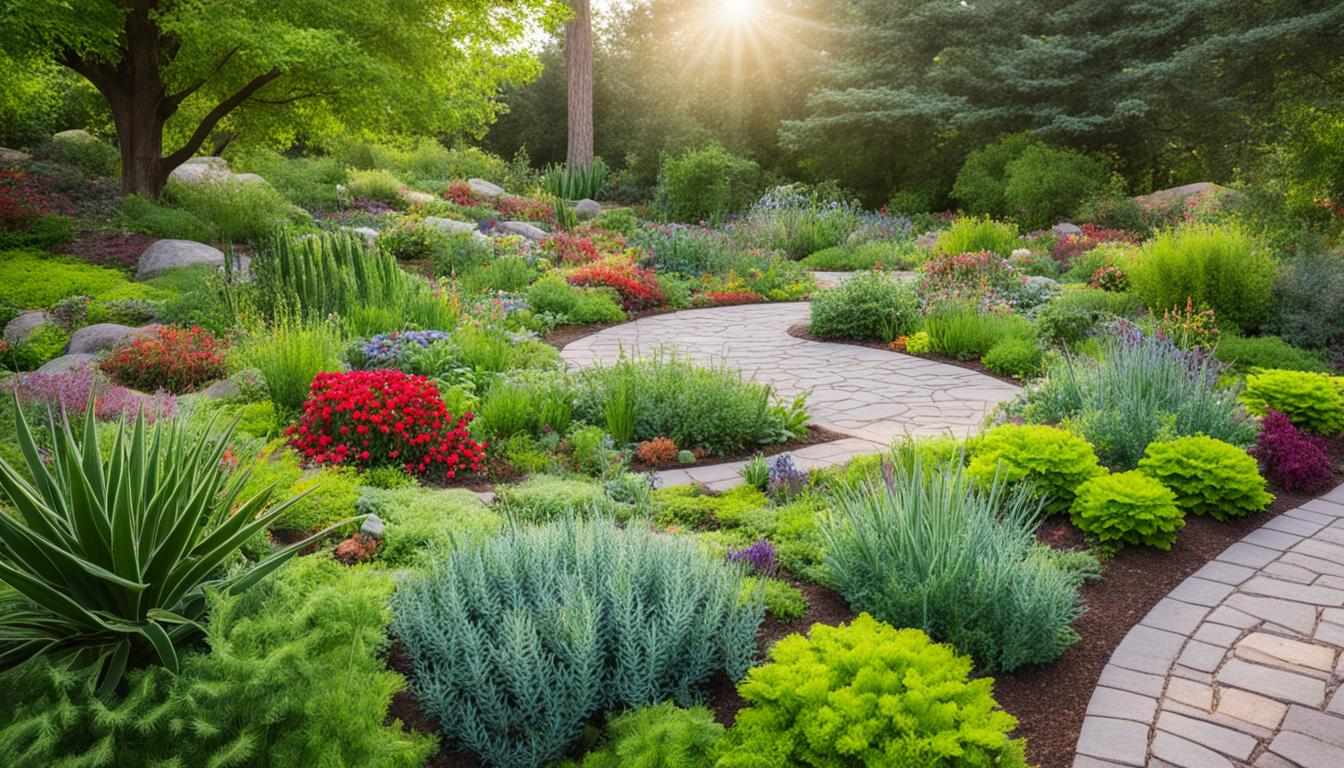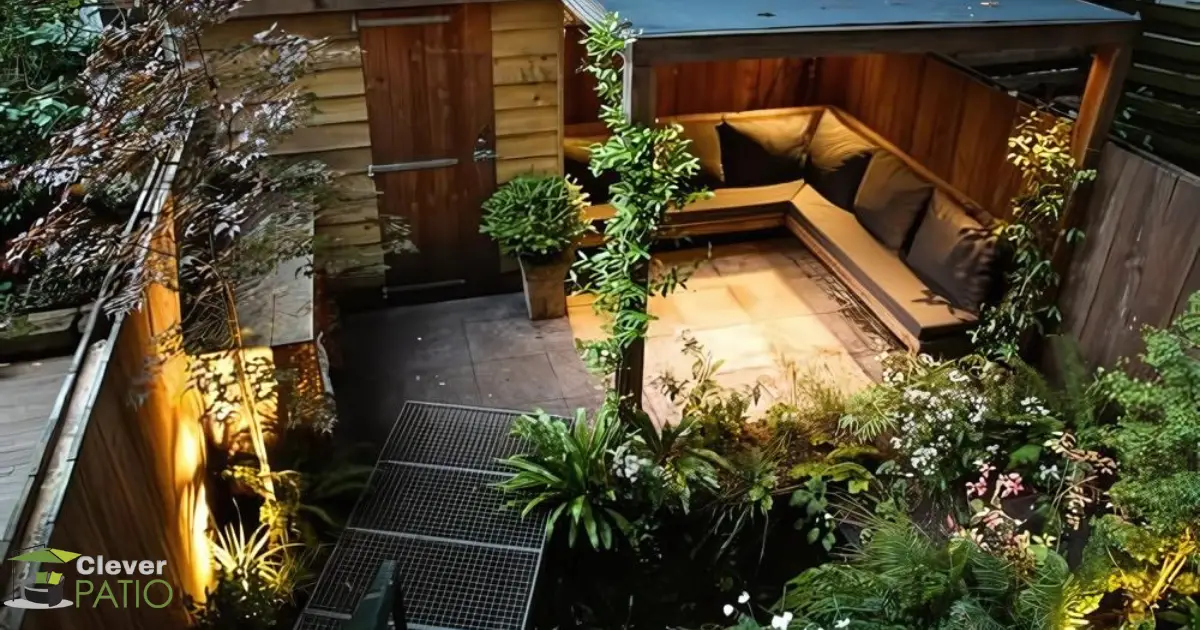I love gardening and have found that coffee grounds are amazing for plants. They are a natural, eco-friendly way to feed your garden.
Many plants, from flowers to veggies, do well with coffee grounds. Let me show you how to use this waste to make your garden better and greener.

Key Takeaways
- Coffee grounds are an excellent, eco-friendly fertilizer for your garden
- Many plants, from flowers to vegetables, can benefit from the nutrients in coffee grounds
- Using coffee grounds is a great way to recycle household waste and create a more sustainable garden
- Coffee grounds can help adjust soil pH and provide essential nutrients for plant growth
- Incorporating coffee grounds into your gardening routine is a simple, cost-effective way to boost plant health
Unlocking the Power of Coffee Grounds for Your Garden
We’re always looking for natural ways to help our gardens grow. Coffee grounds are a great example of this.
They’re often overlooked but are full of benefits for gardeners who love organic gardening.
Discover the Hidden Benefits of This Everyday Waste
Coffee grounds are packed with nitrogen, which is key for plants to grow well.
Adding them to the soil makes it better at holding water and gives plants a steady supply of nutrients. This is a green way to feed your garden instead of using harsh chemicals.
- Nitrogen-rich for robust plant growth
- Improves soil structure and water retention
- Slow-release nutrient supply for plants
- Sustainable and environmentally friendly
Why Gardeners Are Embracing Coffee Grounds
More gardeners are using coffee grounds in their gardens. They’re great for adding nutrients and helping plants grow. Using coffee grounds means we use fewer synthetic fertilizers. This helps make our gardens healthier and more natural.
“Coffee grounds are a game-changer for my garden. They’ve helped my plants thrive in ways I never imagined possible.”
Coffee grounds are a simple way to make our gardens better. They help us use what we already have to make our gardens thrive. This approach makes our gardens more sustainable and beautiful.
Plants That Love Coffee Grounds
Not all plants react the same to coffee grounds in the garden. Some love it, while others don’t. I’ve found 12 plants that really benefit from coffee grounds in their soil.
Azaleas and rhododendrons are great examples. They love the extra acidity from coffee grounds. This makes their leaves lush and their flowers bright. Rose bushes also do well with coffee grounds. They get healthier canes and more flowers.
Tomatoes are another big fan of coffee grounds. They grow stronger roots and taste better because of it.
Evergreens also like the boost from coffee grounds. They grow better with the extra nutrients.
Carrots and hydrangeas round out the list. Carrots grow bigger and straighter with coffee grounds in the soil. Hydrangeas use the acidity to make beautiful flowers.
| Plant | Benefits of Coffee Grounds |
|---|---|
| Azaleas and Rhododendrons | Thrive in acidic soil, coffee grounds provide the perfect pH balance |
| Rose Bushes | Promotes healthier canes and more abundant blooms |
| Tomatoes | Supports stronger roots and enhances flavor of fruits |
| Evergreens | Nourishes the plants with nitrogen-rich organic matter |
| Carrots | Helps carrots grow straighter and larger roots |
| Hydrangeas | Leverages the acidity to produce stunning blooms |
Coffee grounds are a big help for these 12 plants. Adding it to your garden makes the soil rich and helps your plants grow well.
Azaleas and Rhododendrons: The Acid-Loving Beauties
I’ve always loved the bright colors of azaleas and rhododendrons. These plants add beauty and color to any garden. But, they need special soil to grow well.
Maintaining the Perfect Soil pH with Coffee Grounds
I found a great way to help my azaleas and rhododendrons – coffee grounds! These kitchen scraps are great for acid-loving plants. They make the soil just right for these plants.
Adding coffee grounds to the soil lowers the pH level. This is what these plants need to grow well. The coffee grounds also give them the nutrients they need for beautiful flowers.
Using coffee grounds is easy and saves money. It makes my garden look amazing with lots of colorful flowers. This trick has changed my garden for the better.
If you garden, try using coffee grounds for your acid-loving plants. It’s a simple way to make your garden beautiful. With a little work, you can have azaleas and rhododendrons in your yard.
Rose Bushes: Blooming Brilliantly with Coffee Grounds
I love gardening and have found that coffee grounds are great for my rose bushes. These flowers need a lot of nutrients to grow well and bloom a lot.
Adding coffee grounds to the soil gives my roses a steady supply of nitrogen, phosphorus, and potassium. These are the nutrients they need to grow strong and bloom well. This natural fertilizer also keeps the soil’s pH right, which is important for the roses.
| Nutrient | Percentage in Coffee Grounds |
|---|---|
| Nitrogen | 2-3% |
| Phosphorus | 0.1-0.4% |
| Potassium | 0.6-1.2% |
Coffee grounds release nutrients slowly, giving my roses what they need over time. This makes their leaves look great and they bloom a lot. Since I started using this fertilizer, my rose garden looks better than ever.
“Coffee grounds are an excellent, cost-effective way to keep my rose bushes thriving and blooming beautifully all season long.”
If you like roses or are just starting with them, try using coffee grounds in your garden. It’s an easy, green way to make your roses grow well and look amazing. You’ll love the beautiful flowers and colors they add to your garden.
Tomatoes: Enhancing Flavor and Growth with Coffee Grounds
I love organic gardening and have found a secret to better tomatoes – coffee grounds! Adding this waste to the soil around my tomatoes makes them grow bigger and taste juicier. It’s amazing how something so simple can make such a big difference.
The Secret to Juicy, Delicious Tomatoes
Tomatoes do great with coffee grounds. These grounds make the soil better, keep moisture in, and add important nutrients like nitrogen and potassium. Adding coffee grounds to my tomato plants has made a huge difference in their size, texture, and taste.
It’s important to mix the coffee grounds well into the soil. This way, they slowly release nutrients to the plants. It helps the tomatoes grow big and strong.
“Using coffee grounds as a fertilizer for my tomato plants has been a game-changer. The results are simply remarkable – bigger, juicier, and more flavorful tomatoes than I’ve ever grown before.”
Adding coffee grounds to your garden is easy and helps your tomatoes taste better. It’s a great, cheap way to grow delicious tomatoes at home.
Evergreens: Thriving with the Help of Coffee Grounds
I love gardening and have found that coffee grounds are great for evergreens. Evergreens like pine, spruce, and fir need special soil care. Adding coffee grounds to their soil makes them grow well all year.
Nourishing Your Evergreens for a Lush, Vibrant Landscape
Evergreens do well in acidic soil, and coffee grounds add just the right acidity. Putting coffee grounds near your evergreens keeps the soil just right for them. This keeps them looking healthy and green all year.
Coffee grounds also add organic matter and nutrients that evergreens need. As they break down, they give out nitrogen, phosphorus, and other minerals. This helps the roots and makes the leaves grow strong.
Coffee grounds help keep the soil moist, which is good for evergreens. They don’t like drought, and the grounds help keep the soil from drying out too fast. This is great during hot, dry times, keeping evergreens looking good.
Using coffee grounds in my garden has changed how my evergreens grow. It keeps the soil right and helps them stay green and healthy. If you want your evergreens to look their best all year, try using coffee grounds.
Carrots: Boosting Root Crop Yield with Coffee Grounds
I love gardening and have found that coffee grounds are amazing for carrots. They make carrots grow better. I’m excited to share what I’ve learned with you.
Carrots need good soil to grow well. The soil should be loose and full of air for their roots to grow right. Coffee grounds help make the soil better by loosening it and improving its structure.
Coffee grounds also add nitrogen and other important nutrients to the soil. These nutrients help carrots grow strong and healthy. This means you get bigger, tastier carrots. It’s great for your garden and your meals.
“Coffee grounds are a gardener’s best friend when it comes to growing carrot plants. The benefits to root vegetables and overall garden productivity are truly remarkable.”
Adding coffee grounds to your garden is easy and doesn’t cost much. It can really help your carrot plants grow better. I think you should try it and see how it changes your garden.

Healthy gardens start with healthy soil. Coffee grounds are a key ingredient for making your root vegetables thrive. Use this everyday waste and watch your garden productivity increase!
Hydrangeas: Achieving Stunning Color with Coffee Grounds
I love the vibrant colors of hydrangea plants. Getting the perfect flower color can be tricky, though. That’s where coffee grounds come in.
Unleashing the Full Potential of Your Hydrangea Blooms
Hydrangeas change color based on soil acidity. Adding coffee grounds to your hydrangeas can adjust the soil pH. This makes your blooms more stunning.
Coffee grounds are acidic, which hydrangeas love. Using this waste product in your soil makes your flowers more intense and colorful. You can get deep purples or soft pinks, depending on what you want.
The color change depends on your garden’s soil pH. Try different amounts of coffee grounds to get the best colors in your hydrangeas.
Using coffee grounds can make your hydrangeas stand out. You’ll have blooms that everyone will admire. Get ready to be the talk of the town with these beautiful flowers.
My Personal Journey with Coffee Grounds in the Garden
I’ve been using coffee grounds in my garden for years, and it’s been amazing. This simple waste product has changed how my plants grow and stay healthy. From my acid-loving azaleas to my tomato plants and hydrangeas, everything benefits.
Using coffee ground fertilizer has been a game-changer for me. I started adding it to my soil a few years back, and the results were quick. My plants looked better, grew more, and were healthier.
What I love most is how eco-friendly it is. Instead of throwing it away, I use it to feed my plants. This fits perfectly with my goal of gardening in a sustainable way.
Coffee grounds do more than help the planet. They also make the soil better, make nutrients available, and keep pests away. Seeing my garden grow and stay healthy has been incredible.
“Using coffee grounds in my garden has been a game-changer. It’s an easy, affordable way to support the health and vitality of my plants.”
I’m excited to keep finding new ways to use coffee grounds in my garden. Whether it’s for my azaleas, rose bushes, or tomato plants, it’s now a key part of my gardening.
Incorporating Coffee Grounds into Your Gardening Routine
Using coffee grounds in your garden is a great way to feed your plants naturally. It’s easy and can make a big difference. I’ll share some simple tips for using coffee grounds as fertilizer and how to avoid mistakes.
Easy Tips for Using Coffee Grounds as Fertilizer
- Sprinkle a thin layer of coffee grounds around your plants, avoiding the stem or trunk.
- Mix coffee grounds into the soil to help them break down and release nutrients faster.
- Spread coffee grounds on your lawn to give it a steady dose of nitrogen.
- Add coffee grounds to your compost to make a rich soil amendment for your garden.
Avoiding Common Mistakes with Coffee Ground Application
Coffee grounds are great for gardens, but use them wisely to avoid problems. Here are some tips to make the most of this resource:
- Don’t put coffee grounds directly on plant roots because they can be too acidic.
- Don’t use too much coffee grounds, as it can make the soil too acidic for some plants.
- Check your garden’s pH levels and adjust the coffee grounds amount accordingly.
- If your plants look stressed, like yellow leaves or slow growth, use less coffee grounds.
By following these tips, you can easily add coffee grounds in the garden, apply coffee ground fertilizer, and other gardening tips to your routine. This way, you can avoid issues with coffee grounds. Enjoy a lush, vibrant garden with these simple steps.

Conclusion: Embracing the Power of Coffee Grounds for a Thriving Garden
Coffee grounds are a great, eco-friendly addition to your garden. They are packed with nutrients that help your plants grow well. From acid-loving flowers to vegetables, they can make a big difference.
For both new and experienced gardeners, I hope this article has shown you the benefits of coffee grounds in the garden. Using them can make your garden healthy and beautiful. It’s good for your plants and the planet.
Using natural plant growth helpers like coffee grounds is key to eco-friendly horticulture. We should use everyday waste to help our gardens. Coffee grounds can make your garden healthier and more sustainable.
I urge you to try using coffee grounds in your garden. They’re great for acid-loving plants, vegetables, and making hydrangeas colorful. Let’s make gardens that are beautiful and good for the earth with simple, green solutions.
FAQ
What are the benefits of using coffee grounds in the garden?
Coffee grounds are a great natural fertilizer for gardens. They are full of nitrogen, which plants need to grow well. They also help the soil hold water better and make plants healthier.
Which plants thrive best with the addition of coffee grounds?
Plants like azaleas, rhododendrons, and rose bushes do well with coffee grounds. Tomatoes, evergreens, carrots, and hydrangeas also benefit from them. These plants need acidic soil or lots of nutrients, and coffee grounds provide what they need.
How should I apply coffee grounds to my garden?
When using coffee grounds as fertilizer, apply them carefully. Mix them into the soil around your plants, but don’t pile them too high. Make sure they don’t touch the stems or roots. Remember, coffee grounds can change the soil’s pH, so adjust it for your plants.
Can coffee grounds be composted?
Yes, coffee grounds are great for compost piles. They add a lot of nitrogen. Adding them to your compost makes a fertilizer that’s good for all your plants.
Are there any downsides to using coffee grounds in the garden?
Coffee grounds have many benefits, but watch out for a few things. Some plants, like blueberries and azaleas, don’t like acidic soil. Also, too much coffee grounds can make the soil hard for water to get through. Mix them in well and use them in moderation.



